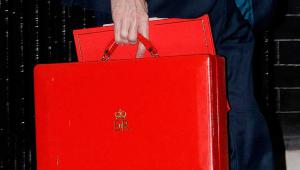There is something a bit awkward about a ‘Budget for growth’ that revises down growth predictions. Obviously, as the Chancellor argues, this is about the long-term, putting the conditions in place for sustained growth after years of living beyond our means. And the public still have a lot of sympathy with this view, with a much higher proportion blaming the previous government for the need for cuts than the coalition.
But how will the measures announced yesterday play with people?
The focus on helping reduce the strain on household budgets, particularly from reducing fuel duty, will clearly go down well – although many will feel it doesn’t go far enough. Ipsos Mori’s survey for the RAC earlier in March showed that the cost of fuel is now by the far the biggest transport concern for the public, highlighted by 68% of people (not just motorists), and that concern has rocketed in the last year.
More generally, we need to remember that inflation is in many ways more politically damaging than job cuts – if only because inflation affects everyone. So we tend to see concern about unemployment as the top issue for the country as a whole, but inflation is what people worry most about as individuals.
The chancellor has clearly maintained a tight grip on our finances – there were no major giveaways, which was predictable at this stage of parliament. And there is still general acceptance that the cuts programme is necessary, although seven in ten would like it to be slower. People will also be watching closely for whether the government’s actions affect the most vulnerable more – 71% already believe this will be the case, and there was arguably little in the Budget to change that perception.
Growth may be the aim, but this requires optimism – and there is little sign of that among the public in our surveys. In fact, the expectation that the economy will get better in the short-term has reached a two-year low – half of the public expect their own situation to get worse in the next few months and two-thirds think the recovery will take three or more years. This is important, as confidence is vital to spending behaviour and therefore the economy as a whole.
The better news, however, is that prior to the Budget, our surveys of business leaders were already showing growing optimism, and a whopping 89% agree that the government’s policies will improve the state of the economy in the long term; the continued pro-business focus of cuts in corporation tax, business rates and signals on the 50% tax rate will reinforce that positive view.
As always, the political effects of the decisions today will take some time to work through. While we’ve already seen dissatisfaction with the chancellor increasing (he is no doubt prepared for that), the opposition is not convincing people they have an alternative, and, most tellingly, voting intention is only slowly shifting towards Labour. Given the nasty medicine being doled out, this is probably better than the government dared hope.
Bobby Duffy is managing director of Ipsos Mori's Social Research Institute











